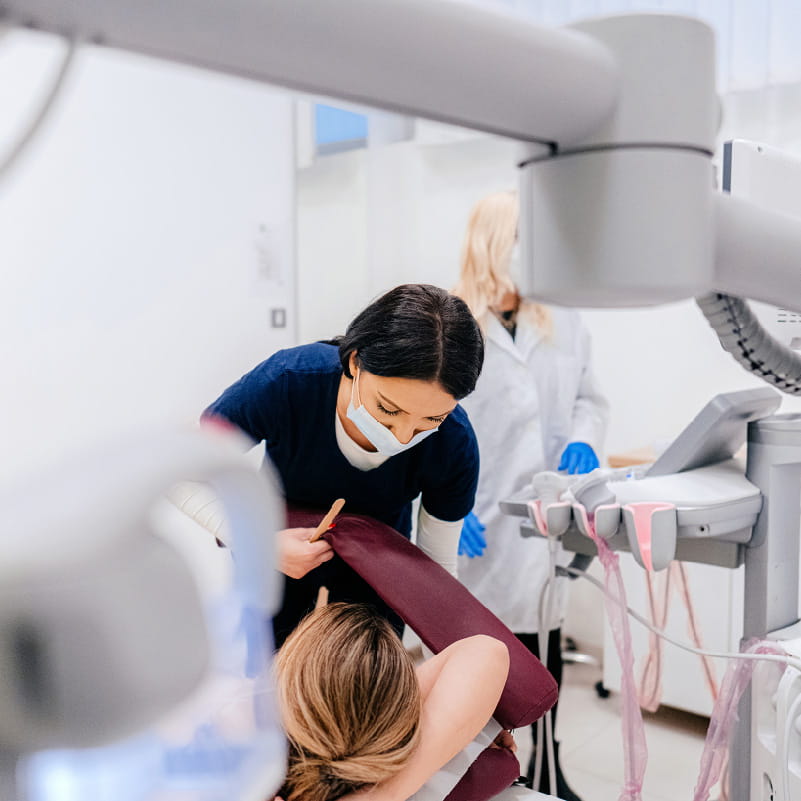 Independence in long-term care" width="" />
Independence in long-term care" width="" />Dr. Scott Schabel explains how long-term care promotes independence and how you can talk to your loved one about transitioning to long-term care.
Dec. 24, 2020 • 5 min read
 Independence in long-term care" width="" />
Independence in long-term care" width="" />
Change can come about quickly in a senior’s life. One day your loved one is independent, and suddenly they require more attention and resources than you as a caregiver can provide. Long-term care facilities offer healthy, active, and safe programs that can help residents maintain their health without sacrificing their independence.
Scott Schabel, MD, Senior Medical Director for Rochester Regional Health Long Term Care, gives his insight into how long-term care can promote independence and how you can talk to your loved one about transitioning to long-term care.
*COVID-19 : Many Long-Term Care facilities have enhanced visitor restrictions and reduced program participation until it is safe to resume. The information in this article is intended to guide participants and families when there is no risk of COVID-19 in our community.
Many might worry that moving a loved one into a skilled nursing facility means a loss of control of their day-to-day lives. But in many ways, the assistance residents receive in long-term care allows them to take back control of their lives. By removing the challenges of tasks they may be struggling with or skipping at home, residents are often better able to focus on doing the things they enjoy.
"Some of the greatest benefits to the resident actually come from lightening the load on the caregivers,” said Dr. Schabel. “Caregivers can then spend more time engaging with the resident in more meaningful ways that can only come through a loving relationship.”
When seniors have more time to live a healthier lifestyle, they also have more time to work on skills that may have deteriorated. Long-term care residents receive help with certain aspects of their day and gain access to many healthy and safe programs not available in a traditional home setting. They can exercise their independence and maintain important skills by participating in meaningful activities as an active member of a community.
Once you’ve decided that a long-term care facility might be the right choice for your loved one, the first step is talking to them about why and how a long-term care facility will benefit them. You can help make the transition easier for your loved one by communicating clearly and carefully about their need for increased care.
Seniors often worry about how they will accomplish daily tasks without your care. Ask them if they have any concerns, and explain to them that basics like transportation, meals, activity programs, and social events are all provided in the facility.
“Our community offers a wide variety of settings for senior care, and one size does not fit all. Only the senior can determine which setting feels like a home to them.”
Family members and friends can help move a senior into long-term care and can help reduce the physical and emotional stresses that may be involved. They can plan the move, participate on the day of the move, and provide love and support once they are in care.
*COVID-19 Reminder : Many Long-Term Care facilities have enhanced visitor restrictions and reduced program participation until it is safe to resume. The information in this article is intended to guide participants and families when there is no risk of COVID-19 in our community.
Rochester Regional Health understands the unique needs and concerns of seniors, and we are committed to helping every resident remain healthy, active, and independent. For those in our aging community who require additional care, we offer a range of services and programs to fit most every need, including:
Rochester Regional offers several skilled nursing homes, each providing its own specialty of care, including Alzheimer's disease, short-term rehabilitation, transitional care, ventilator units and relaxation therapy.
![]()

Density can play a significant role in a woman’s breast health – especially when it comes to imaging and screenings. Our experts share what women need to know.

Pickleball is one of the fastest growing sports in the United States. Michael Stanton, MD, points out common injuries and how to avoid them.

When you or someone you know has an unexpected injury or sudden illness, where should you go for care? Learn the key differences between urgent care and the emergency room.

Ear infections are very common, especially among young children. Our experts share how to recognize the symptoms and how to treat them.